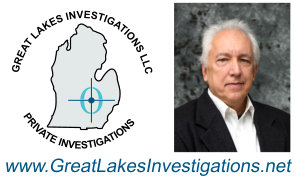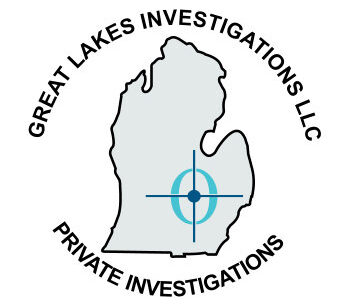GPS Trackers: Legal? Its applications and implications

Sherwood A. De Visser,
Private Investigator & Author
Great Lakes Investigation, LLC
Mr. De Visser is sole owner of a professional investigative agency with more than 25 years of investigative experience for insurance companies, corporations, third-party administrators, and defense law firms. While possessing a broad range of skill sets within fraud and the investigative industry, he has successfully brought to conclusion for his clients hundreds of investigations and surveillance, saving clients millions of dollars
Article Executive Summary
Since the introduction of GPS trackers to the marketplace, court cases and lawsuits addressing the legal uses and ethical uses of trackers have been inconsistent from the federal level down to the state level. Likewise, to date, there is no definitive Michigan case law. No lower courts have addressed the usage of trackers by professional investigators for the purpose of surveillance in civil insurance claims. The State of Michigan, however, addresses the use of GPS trackers in the Michigan Penal Code, MCL 750.539l. In essence—it is legal. Professional investigators (PIs) are exempted from criminal prosecution for the placement of trackers on personal properties (i.e. vehicles) for the purpose of information gathering and surveillance in civil insurance matters.
A key issue, however, is one of perception narrated by plaintiff attorneys to taint juries, even in the face of incriminating video documentation of their clients, and that, albeit legal, placing trackers on plaintiffs’ vehicles is “sneaky” and should be seen as such.
GPS TRACKERS: LEGAL?
A brief history of the private investigator industry shows a long-standing field of “old school” surveillance—one to two vehicles going mobile, chasing plaintiffs and claimants, hiding inside tinted window surveillance vans; grown men in shrubberies with high-powered cameras taking close-ups of presumed nefarious fellows. Old-school surveillance entailed setting up a suitable surveillance position in a neighborhood and taking copious close-up photos and videos of plaintiffs or claimants (hereinafter referred to as “subjects”) doing things contrary to what they alleged in their depositions, facilitations, or answers to interrogatories. Times change, however, and so do surveillance tools and technologies.
In the last decade, there has been an increase in use of GPS tracking technology for surveillance. GPS tracking devices have become an invaluable tool for private investigators. In fact, insurers, third-party administrators, and some self-insured companies are even quietly endorsing professional investigative firms to use tracking devices.
GPS tracking data delivers concrete evidence in a safe and cost-effective way. GPS tracking technology allows investigators to conduct casual surveillance, removing any threat of following a subject at high speeds down Gratiot or Van Dyke during rush hour. The risk of accidents, incidental road rage events, or losing the subject altogether, is avoided. Yet, the legal-defense industry, understandably, may have concerns about the use of these tracking devices, such as legality and privacy concerns.
So, what do these devices look like? How do they function? What type of concrete evidence do they give defense attorneys?
Overview of GPS Tracking Devices
A GPS tracking device is defined as any electronic device that is designed or intended to be used to track the location of a motor vehicle regardless of whether that information is recorded. The tracking devices are relatively small, about the size of a deck of playing cards, or an Altoid container. They are generally flat black and can be encased in a black water resistant (pelican case) covering with a strong magnet. Trackers transmit their location in any given time period to a host (laptop or smart phone) via satellite in real time. Once attached, the trackers are difficult to detect unless, for example, the owner of the vehicle goes to a Midas or Belle Tire and the vehicle is hoisted. Even then the tracker is difficult to spot if it is attached high up on the frame or around the muffler. It is best to attach a tracker to the rear portion of the vehicle, and never in the front of the vehicle or to the engine block, because those specific placements heighten a consistent signal returning to the host.
Tracking data provides detailed vehicular stopping and starting reports, as well as movements and address history. The tracking data is quite accurate and specific. Data mined can show a subject’s activity for as long as 45 days (battery life). While the use of GPS trackers is safer in today’s road-rage society, the devices also provide economical alternatives for long term surveillances. For example, in larger cities or heavy traffic areas, several investigators would be needed to conduct a surveillance effectively and safely. This results in much higher fees than the daily or weekly rate for monitoring a GPS device. The rate for surveillance using trackers ranges from $25-$65 per day plus $100 for attachment and $100 for removal, compared to $65- $100 per hour for an investigator, plus mileage over a period of several days.
Legality of the Use of GPS Trackers in Personal Injury Cases
Since the introduction of GPS trackers to the marketplace, court opinions addressing the legal and ethical issues of trackers have been inconsistent from the federal level down to the state level. In 2012, the United States Supreme Court ruled that government and law enforcement agents in criminal matters are precluded from placing trackers to monitor movements without a warrant. The dialog on this topic remains ongoing,as technology advances and applications,of trackers increase; however, federal law,has not specifically addressed whether it,is legal or ethical to use GPS trackers in civil matters.
To date, there is no definitive Michigan case law regarding the usage of trackers by professional investigators for the purpose of surveillance in civil insurance claims. The Michigan Legislature, however, addressed the use of GPS trackers in the Michigan Penal Code. The Michigan Penal Code, MCL 750.539l, exempts professional investigators and their employees and agents from being precluded in applying tracking devices on motor vehicles:
(1) A person who does any of the following is guilty of a misdemeanor punishable by imprisonment for not more than 1 year or a fine of not more than $1,000.00, or both:
(a) Installs or places a tracking device, or causes a tracking device to be installed or placed, in or on a motor vehicle without the knowledge and consent of the owner of that motor vehicle or, if the motor vehicle is leased, the lessee of that motor vehicle.
(b) Tracks the location of a motor vehicle with a tracking device without the knowledge and consent of either the owner or the authorized operator of that motor vehicle or, if the motor vehicle is leased, either the lessee or the authorized operator of that motor vehicle.
(2) Subsection (1) does not apply to any of the following
(j) Except as provided in subsection
(3), the installation or use of a tracking device by a professional investigator or an employee of a professional investigator lawfully performing his or her duties as a professional investigator or employee of a professional investigator for the purpose of obtaining information with reference to any of the following:
(i) Securing evidence to be used before a court, board, officer, or investigating committee.
(ii) Crimes or wrongs done, threatened, or suspected against the United States or a state or territory of the United States or any other person or legal entity. . . . (emphasis added).
In essence—it is legal. Professional Investigators (PIs) are exempted from criminal prosecution for the placement of trackers on personal properties (i.e. vehicles) for the purpose of information gathering and surveillance in civil insurance matters.
Defense lawyers, however, need to be aware when hiring private investigators for surveillance, that it is likely some professional investigators hide the fact they use tracking devices. The motive for non-disclosure could simply be trade secret, sort of akin to the rationale of a magician not sharing magic-trick secrets. There is nothing to hide; one must just be prepared to righteously defend the right to use this technology.
What Happens When a Subject Finds the GPS Devices
In 2015, this author was deposed on the issue of placing a tracker on a plaintiff ’s vehicle in an auto PIP claim. It had come to light, literally, due to an electronic glitch, when the tracker battery ran low and a tiny LED blue light blinked as the battery ran down. This would not have been a problem except that the plaintiff ’s vehicle, parked over a shiny black, rain enhanced, asphalt driveway, reflecting noticeably as the plaintiff exited his dwelling and was about to depart for generic whereabouts. The plaintiff noticed the blinking light and brought the tracker to his attorney, who in turn angrily contacted the insurer’s defense counsel.
Defense counsel had no knowledge of the tracker since it was the client who authorized the use of a tracker. Defense counsel was presented with a copy of the Penal Code and subsequently sent it to the plaintiff ’s attorney. Once the plaintiff ’s attorney was presented with the statute all would be in full compliance with the world. Right? The Penal Code was specific, was it not?
Incidentally, this investigator would have wished the manner in which the tracker was removed had been addressed by defense counsel. Would it not have been better to force plaintiff ’s attorney to admit or deny that his client took the tracker off despite his recorded testimony that he was incapable of bending over?
This author was then surprised when summoned for a deposition. What could there be to discuss…to depose? Both investigator and defense attorney reasoned, based on the Penal Code, this was clear cut, a lawful action.
The investigator had a legal right to use a tracking device under the circumstances described. This author had been given clear approval by the client to place a tracker on the plaintiff ’s vehicle. The insured had sued the insurance company. Litigation was looming. The vehicle, a blue Ford Fusion, had been in several minor vehicular accidents, and a key issue in the case was whether the vehicle was drivable and operable by the plaintiff, as the plaintiff had alleged to the insurance company that the vehicle was “totaled.”
At the onset of the surveillance, the Fusion was parked in the plaintiff ’s driveway, with the rear portion butting
up to a public sidewalk. The tracker was placed in the rear bumper as the Fusion sat in the driveway, as described above.
Throughout the deposition, the plaintiff ’s attorney did not attempt to define the act of placing the tracker on his client’s vehicle as trespassing, or a violation of privacy. He did get on record that the tracker was placed on the Fusion while parked in the plaintiff ’s driveway. A direct attack of trespassing or invasion of privacy, however, never materialized, with the exception of describing this investigator as, “sneaking around and stuff.”
The issue at deposition was whether this investigator was knowingly in compliance with MCL 750.539l(2)(j)(i) and (ii) of the Penal Code. Plaintiff ’s attorney inquired as to whether this investigator understood his “duty” as a professional investigator for the purpose of obtaining information and securing evidence to be used before a court. Plaintiff ’s counsel reasoned that applying a tracker on his client’s vehicle was not in compliance with the Penal Code because it could not be foreseeable that the PIP claim was “going to court.” Therefore, this investigator had no legal right to place a tracker on the vehicle under MCL 750.539l(2)(j):
Deposition, Pages 22 through 25:
Q: Except as provided in Subsection 3, the installation or use of a tracking device by a professional investigator, which you are; correct?
A: Yes, lawfully performing his or her duties as a professional investigator or employee of a professional investigator for the purpose of obtaining information with reference to any of the following
Q: Are you saying that (j.) (i.), securing evidence to be used before a court, a board, officer, or investigative committee is where you find yourself?
A: Yes
Q: Now, the truth of the matter is, as we know today, there was a court proceeding at that time; correct?
A: Correct.
Q: Okay? There wasn’t a board or officer that was involved; correct?
A: Correct.
Q: Or an investigating committee; correct?
A: Correct.
Q: You — it would seem to me – securing evidence to be used before a court that is why you were securing it.
A: Correct.
Q: You — it would seem to me — securing evidence to be use before a court that isn’t why you were securing it, wasn’t it?
A: Well, there’s two. The securing the evidence to be used before a court. It was in — while, the assumption was
eventually is going to be litigated.
Q: You did know that, did you Sir?
A: Well, once [Defense Counsel] has it eventually it’s going to be litigated.
Q: And I’m going to ask you that again and I’m going to be very kind about it. You did not know that, did you? …could have settled this case with me before it ever got to court.
A: …when defense counsel is retained by an insurance company, they are foreseeing litigation. So, based on that…I was going to obtain information [with the placement of a GPS tracker].
Q: Okay.
A: Or that was going to be my assumption as I go out there in preparation of a future event, litigation.
Q: So, you’re telling me that you’re going to tell a jury later that if the assignment would have gone from [the Insurer] versus [defense counsel] a lawyer you would not have placed a GPS device on this vehicle.
A: Probably correct. Definitely.
Q: Am I correct?
A: Yes.
Deposition, page 62, Reexamination by the Plaintiff Attorney:
Q: I’m just confused about something. A guy with your experience, did you think [the plaintiff ] was a terrorist or something? How does (j.) (ii.) — how does (j.) (ii.), crimes or wrongs done, threaten or suspected against the United States –
Because it’s –
Q. Well, let me finish. — or the state or territory of a state or other persons or…
A. I looked at wrongs done any other person or legal entity.
Q. Okay. Cool. You actually looked at that.
A: We had —
Q: Did you actually look at that?
A: Yes.
Q: Okay. Fine.
A: Can I add or —
Q: No. I just wanted to make sure you looked at it, that’s all. Okay. I have no further questions.
Conclusion
Is it prudent then, based upon foreknowledge of being discovered and a looming trial, that GPS trackers should be used. The insurance industry generally does not have a problem with GPS tracking even before a claim is litigated. Can the threat of discovery taint the video documentation attained through the use of tracking devices be worthwhile? As with new technology there is an upside and downside. GPS trackers are cost effective and increase the likelihood of obtaining great incriminating video. But what will the jury perceive? A plaintiff attorney easily can paint the narrative of the professional investigator as a “sneaky” fellow. This can taint any jury, whether or not GPS tracking is legal.
As defense counsel, do not assume that a professional investigator knows all the legal nuances of the statute as he or she applies that small black box to a subject’s vehicle in the dead of night. A plaintiff ’s attorney, a good one, will not be impressed with the knowledge of this statute even if it is time he or she has read it. A good attorney will hone in on the PIs understanding of that statute and test whether that PI not only believed the PI complied with the statute but the PI understood the specific statute’s subsections and what specific part of the statute the PI believed he or she complied with to legally invade privacy rights. The PI better be ready.
Before giving approval for a PI to use a GPS tracker, make certain that PI is well versed in the statute and equally well versed in the placement of this technology as seen under the statute. Otherwise under oath, in a deposition, or in court, an unprepared PI could damage the chances of an otherwise winnable case, despite excellent hi-definition video documentation. A possible no cause or small award could blow up into a six figure hit for your client.
It appears, from personal experience, the “other side” more or less will be on a fishing expedition. Professional investigators and defense attorneys can get ahead of this “perception” issue, by shaping the narrative in our clients’ favor. It is imperative to impress a narrative to juries that placement of GPS trackers, and the manner in which they are placed, is for safety reasons. In actuality, it does protect the long term privacy rights of the subject. No longer does a PI have to “sneak around” the subject’s neighborhood; instead, it allows the subject to go out into public places to be monitored.
This calls for non-dubious gamesmanship on the investigator’s part, with assistance from defense counsel, which will balance out the vexing showmanship that the other side will surely muster. A good investigator should relish that challenge and should have the acumen for it.
Private Investigator Great Lakes Region
As a private investigator based out of Michigan Great Lakes Investigation can service a multi-state territory on behalf of customers needing investigative services in Indiana, Illinois, Ohio, and Wisconsin. From workers compensation to auto insurance fraud.

